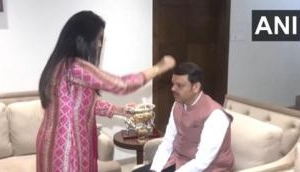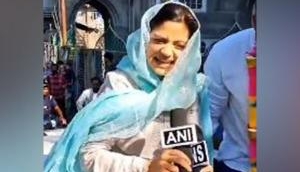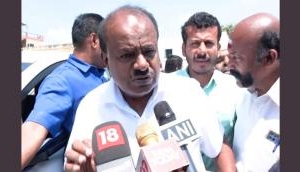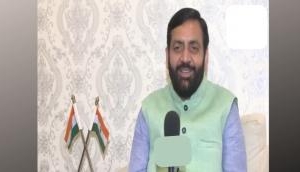No more hiding: Delhi HC rules that political parties must abide by the I-T Act

The judgement
- High Court Bench rules that political parties must abide by Income Tax Act (1961)
- This issue has been in the dock since 1995
- The judgement highlights ways in which political parties have evaded paying income tax
More in the story
- A breakdown of the key points in the judgement
- A look at the other issues surrounding party finances
"The significance of this case . lies in it being symbolic of the general lack of transparency and accountability of political parties in this country."
The clarity that the two judges of the Delhi High Court displayed in writing the above sentence is very commendable. This judgment will be remembered for a long time to come as a very significant step in bringing in "transparency and accountability of political parties in this country."
What is the judgment about?
The judgment, actually two separate judgments delivered by the same Bench, on the same day, one about the Congress Party and the other about the Janata Party, are about "the interpretation of Section 13A of the Act and in particular the expression 'income from voluntary contributions received' found therein."
Read- Name one thing common between BJP and Congress: Foreign funds
Section 13A of the Income Tax Act (I-T Act) is titled Special provision relating to incomes of political parties. Introduced with effect from 1 April 1979, it grants 100% exemption from income tax for incomes of political parties.
Common Cause, a civil society organisation, filed a PIL in the Supreme Court in 1995 claiming that political parties were openly flouting laws under the garb of Section 13A of the IT Act. The judgment in that PIL, which came to be known as Common Cause vs Union of India (1996), the Supreme Court held that Income Tax authorities had been remiss in invoking the statutory provisions against the defaulting political parties. It also directed "The Ministry of Finance, Department of Revenue . to have an investigation/inquiry conducted against each defaulting political party and initiate necessary action in accordance with law including penal action under Section 276CC of the Act."
Whether the origins of these two cases can be attributed to the Common Cause case or not isn't a matter relevant here. But the facts, as recorded in the two judgments, are that the origins of these cases lie in notices issued to the Congress on 20 September 1995, and to the Janata Party on 21 September 1995, asking them to file their income tax returns for the Assessment Year 1995-96. Both cases then meandered and the respective Assessment Officers (AOs) passed their orders on 21 March 1997 for the Congress, and on 31 March 1998 for the Janata Party.
Read: 8 ways Modi plans to tackle corruption and terror financing
Appeals were filed to the Commissioner of Income Tax (Appeals) in both cases, and were rejected in July 1998 for the Congress, and in February 2000 for the Janata Party. Both parties then filed appeals to the Income Tax Appellate Tribunal (ITAT). The ITAT upheld the appeals in April 2001 for the Congress, and in November 2001 for the Janata Party.
The Income Tax Department then filed appeals in the High Court in January 2002 and January 2004 respectively for the Congress and for the Janata Party.
What does the judgment say?
The main judgment opens with a reference to a celebrated case, Kanwar Lal Gupta vs Amar Nath Chawla (1975), saying that the Supreme Court had observed "the distortion that large contributions of money made to political parties and candidates could bring about to the electoral process . more than four decades ago."
The 71-page judgment goes into the nitty-gritty of the current case, pinpointing exactly how shelter has been taken behind utterly irrelevant and baseless arguments, and almost maliciously behind the seemingly deliberately left ambiguities in law. The "Summary of conclusions" itself runs into 17 points!
Also read- Corruption uninterrupted: new report still ranks India among most corrupt countries
Just for the record, the judgments hold that the Congress and the Janata Party are required to pay income tax on Rs 25.12 crores and Rs 1.23 crores respectively.
What is more important is what the judgment says about the state of political finance in India and what needs to be done about it.
In addition to the Kanwar Lal Gupta vs Amar Nath Chawla (1975) and the Common Cause vs Union of India (1996) cases that have been mentioned earlier, the judgment also refers to the Guidelines on Transparency and Accountability in Party Funds and Election Expenditure issued by the Election Commission of India on 29 August 2014, and 255th Report of the Law Commission of India on Electoral Reforms. It also draws attention to the recent judgment of the Supreme Court in the Ashok Chavan case which refers to the use of unaccounted money in the electoral process.
The last paragraph of the judgment captures its essence eloquently. It deserves to be reproduced in the original.
"Considering that political parties are an essential part of our democracy and are dealing in large sums of public money, much of which is unaccounted, the proper auditing of the accounts of the political parties is both imperative [and] critical to the conduct of free and fair elections. The above recommendations of the LCI should receive serious and urgent attention at the hands of the executive and the legislature if money power should not be allowed to distort the conduct of free and fair elections. This will in turn infuse transparency and accountability into the functioning of the political parties thereby strengthening and deepening democracy."
Other issues
While dealing with the main issue in detail, the judgment also comments on three important related concerns.
The first one pertains to how accounts of political parties are audited. There are scathing comments on the way accounts have been audited and the cavalier way in which certifications have been done. These observations are worth taking note of and being acted upon by the Institute of Chartered Accountants of India.
Read more- Oommen Chandy has 2 lifelines left: High Court and high command
The second issue is that of accepting donation from foreign sources which is forbidden under Section 4(1)(e) the Foreign Contribution (Regulation) Act, (FCRA), 1976. The AO's report, as well as the auditor's report of 1 July 1997, mentions that Rs 1 crore had been received from foreign sources. The auditor's report, reproduced in the judgment, also states that a PIL "has been moved in Delhi High Court challenging the acceptability of these donations under the provisions of the FCRA." This directly relates to a current case in which both, BJP and the Congress, have been held in violation of the FCRA.
The third issue which is referred to in passing is that of political parties being under the purview of the Right to Information Act. Commenting on what it might take to estimate "with a degree of certainty, the income of a political party," the judgment goes on to say that, "this kind of an exercise would require collating a vast amount of data which as of now does not exist in the public domain particularly with political parties resisting attempts at bringing them within the ambit of the Right to Information Act, 2005."
The real heroes
Notwithstanding the reasons for issuing the original notices, the real heroes in this case are the Assessment Officers who issued those notices and then followed up all the way, including presumably convincing, perhaps persuading, their superiors to persist with the appeals to the High Court.
Equally commendable is the courage and actions of the senior officers of the Income Tax Department. With such dedicated bureaucrats and a judiciary that does not shy away from exercising its independence in upholding the rule of law, it is not impossible to imagine the day when all political parties will be subjected to the law of the land, like any other citizen.
Edited by Anna Verghese
More in Catch:
West Bengal: Left-Congress tie-up makes sense at every level. But can they win?
63rd National Awards: Kangana bags her 3rd; Bachchan Sr, Baahubali win big
Drought-hit farmers on the brink: Chhattisgarh govt bungles relief distribution
Four extensions later, India coastal management plan still in tatters
First published: 28 March 2016, 4:04 IST





![BJP's Kapil Mishra recreates Shankar Mahadevan’s ‘Breathless’ song to highlight Delhi pollution [WATCH] BJP's Kapil Mishra recreates Shankar Mahadevan’s ‘Breathless’ song to highlight Delhi pollution [WATCH]](https://images.catchnews.com/upload/2022/11/03/kapil-mishra_240884_300x172.png)

![Anupam Kher shares pictures of his toned body on 67th birthday [MUST SEE] Anupam Kher shares pictures of his toned body on 67th birthday [MUST SEE]](https://images.catchnews.com/upload/2022/03/07/Anupam_kher_231145_300x172.jpg)






